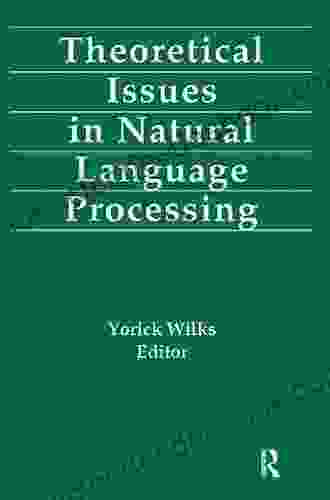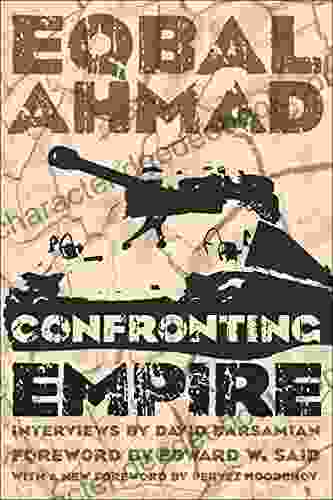Theoretical Issues in Natural Language Processing Education

Natural language processing (NLP) is a subfield of artificial intelligence that deals with the understanding of human language. NLP is used in a wide range of applications, such as machine translation, text summarization, and spam filtering.
Teaching NLP is a challenging task. NLP is a complex field that draws on a variety of disciplines, including linguistics, computer science, and mathematics. In addition, NLP is a rapidly evolving field, with new techniques and algorithms being developed all the time.
As a result of these challenges, it is important for NLP educators to have a strong theoretical foundation. A theoretical foundation can help educators to understand the underlying principles of NLP, and to keep up with the latest developments in the field.
4.1 out of 5
| Language | : | English |
| File size | : | 2528 KB |
| Text-to-Speech | : | Enabled |
| Screen Reader | : | Supported |
| Enhanced typesetting | : | Enabled |
| Word Wise | : | Enabled |
| Print length | : | 263 pages |
| Hardcover | : | 244 pages |
| Item Weight | : | 1.17 pounds |
| Dimensions | : | 6 x 0.69 x 9 inches |
There are a number of challenges associated with teaching NLP. These challenges include:
- The complexity of NLP: NLP is a complex field that draws on a variety of disciplines. As a result, it can be difficult for students to understand the underlying principles of NLP.
- The rapidly evolving nature of NLP: NLP is a rapidly evolving field, with new techniques and algorithms being developed all the time. This can make it difficult for educators to keep up with the latest developments in the field.
- The lack of a unified theoretical framework: There is no single, unified theoretical framework for NLP. This can make it difficult for students to understand the different approaches to NLP.
Despite the challenges, it is important for NLP educators to have a strong theoretical foundation. A theoretical foundation can help educators to:
- Understand the underlying principles of NLP: A theoretical foundation can help educators to understand the underlying principles of NLP. This can help educators to explain the concepts of NLP to students, and to answer their questions.
- Keep up with the latest developments in the field: A theoretical foundation can help educators to keep up with the latest developments in the field. This is because a theoretical foundation can help educators to understand the new techniques and algorithms that are being developed.
- Develop new approaches to NLP: A theoretical foundation can help educators to develop new approaches to NLP. This is because a theoretical foundation can help educators to understand the strengths and weaknesses of the existing approaches to NLP.
There are a number of different theoretical approaches to NLP. These approaches include:
- Symbolic approaches: Symbolic approaches to NLP represent language as a set of symbols. These symbols can be used to represent the meaning of words, phrases, and sentences.
- Statistical approaches: Statistical approaches to NLP use statistical techniques to process language. These techniques can be used to identify patterns in language, and to make predictions about the meaning of words and sentences.
- Connectionist approaches: Connectionist approaches to NLP use artificial neural networks to process language. These networks can be trained to recognize patterns in language, and to make predictions about the meaning of words and sentences.
Each of these theoretical approaches to NLP has its own strengths and weaknesses. The best approach for a particular NLP task will depend on the specific requirements of the task.
Teaching NLP is a challenging task, but it is also an important one. NLP is a powerful technology that can be used to solve a wide range of problems. By providing students with a strong theoretical foundation, NLP educators can help them to understand the underlying principles of NLP, and to develop the skills that they need to use NLP effectively.
4.1 out of 5
| Language | : | English |
| File size | : | 2528 KB |
| Text-to-Speech | : | Enabled |
| Screen Reader | : | Supported |
| Enhanced typesetting | : | Enabled |
| Word Wise | : | Enabled |
| Print length | : | 263 pages |
| Hardcover | : | 244 pages |
| Item Weight | : | 1.17 pounds |
| Dimensions | : | 6 x 0.69 x 9 inches |
Do you want to contribute by writing guest posts on this blog?
Please contact us and send us a resume of previous articles that you have written.
 Novel
Novel Page
Page Story
Story Reader
Reader E-book
E-book Magazine
Magazine Paragraph
Paragraph Sentence
Sentence Bookmark
Bookmark Bibliography
Bibliography Preface
Preface Scroll
Scroll Tome
Tome Classics
Classics Narrative
Narrative Biography
Biography Autobiography
Autobiography Memoir
Memoir Dictionary
Dictionary Narrator
Narrator Character
Character Resolution
Resolution Librarian
Librarian Catalog
Catalog Card Catalog
Card Catalog Borrowing
Borrowing Stacks
Stacks Periodicals
Periodicals Research
Research Lending
Lending Reserve
Reserve Academic
Academic Reading Room
Reading Room Rare Books
Rare Books Interlibrary
Interlibrary Study Group
Study Group Thesis
Thesis Awards
Awards Reading List
Reading List Book Club
Book Club Jessica Lawson
Jessica Lawson Rajat K Baisya
Rajat K Baisya Alec Sharp
Alec Sharp Aldo Bernal
Aldo Bernal Alberto Ron
Alberto Ron Dayna Laur
Dayna Laur Lauren Rosewarne
Lauren Rosewarne Janie Archer
Janie Archer Rivita Goyle
Rivita Goyle Harriet Hargrave
Harriet Hargrave Kelly Murphy
Kelly Murphy Donald A Dinero
Donald A Dinero John Perritano
John Perritano Dianne Hales
Dianne Hales Jim Mcguigan
Jim Mcguigan Barbara Cotter Smith
Barbara Cotter Smith Rick Massimo
Rick Massimo Pancho Mcfarland
Pancho Mcfarland Bonita M Kolb
Bonita M Kolb Mirsad Solakovic
Mirsad Solakovic
Light bulbAdvertise smarter! Our strategic ad space ensures maximum exposure. Reserve your spot today!
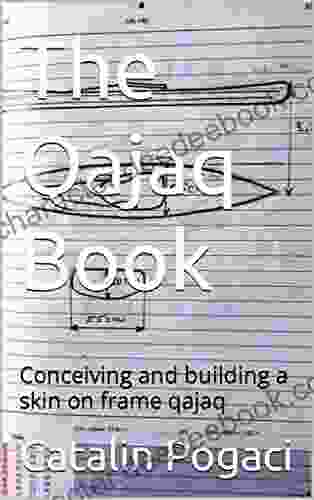
 Gerald ParkerConceiving and Building Skin-on-Frame Qajaq: An Immersive Journey into the...
Gerald ParkerConceiving and Building Skin-on-Frame Qajaq: An Immersive Journey into the...
 Floyd PowellKinda Friends II: Super Speed Sam 12 - A Thrilling Adventure into the World...
Floyd PowellKinda Friends II: Super Speed Sam 12 - A Thrilling Adventure into the World... Isaiah PriceFollow ·15.9k
Isaiah PriceFollow ·15.9k Fernando PessoaFollow ·11.2k
Fernando PessoaFollow ·11.2k Max TurnerFollow ·10.9k
Max TurnerFollow ·10.9k Howard BlairFollow ·17.7k
Howard BlairFollow ·17.7k W. Somerset MaughamFollow ·10.7k
W. Somerset MaughamFollow ·10.7k Ethan GrayFollow ·19.5k
Ethan GrayFollow ·19.5k Rob FosterFollow ·4.7k
Rob FosterFollow ·4.7k Dion ReedFollow ·9k
Dion ReedFollow ·9k
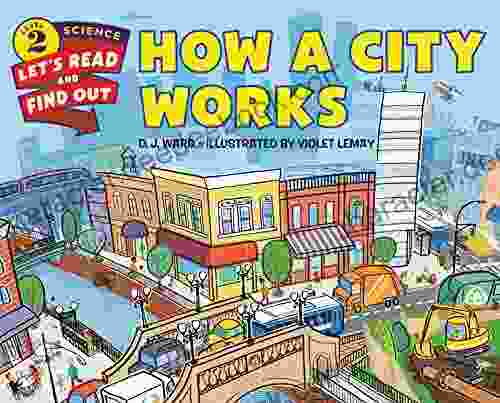
 Ronald Simmons
Ronald SimmonsHow Do Cities Work? Let's Read and Find Out!
Cities are...
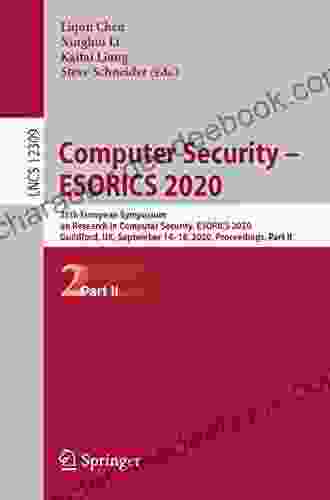
 Tom Clancy
Tom Clancy25th European Symposium on Research in Computer Security...
<p>Guildford,...

 Lawrence Bell
Lawrence BellHow We Decide: Cognitive Behavior in Organizations and...
Organizations are...

 E.M. Forster
E.M. ForsterOver 60 Little Masterpieces To Stitch And Wear:...
Embark on a Creative...

 Douglas Foster
Douglas FosterUnveiling the Educational Treasure: CGP KS2 Geography:...
In the ever-evolving educational...
4.1 out of 5
| Language | : | English |
| File size | : | 2528 KB |
| Text-to-Speech | : | Enabled |
| Screen Reader | : | Supported |
| Enhanced typesetting | : | Enabled |
| Word Wise | : | Enabled |
| Print length | : | 263 pages |
| Hardcover | : | 244 pages |
| Item Weight | : | 1.17 pounds |
| Dimensions | : | 6 x 0.69 x 9 inches |


